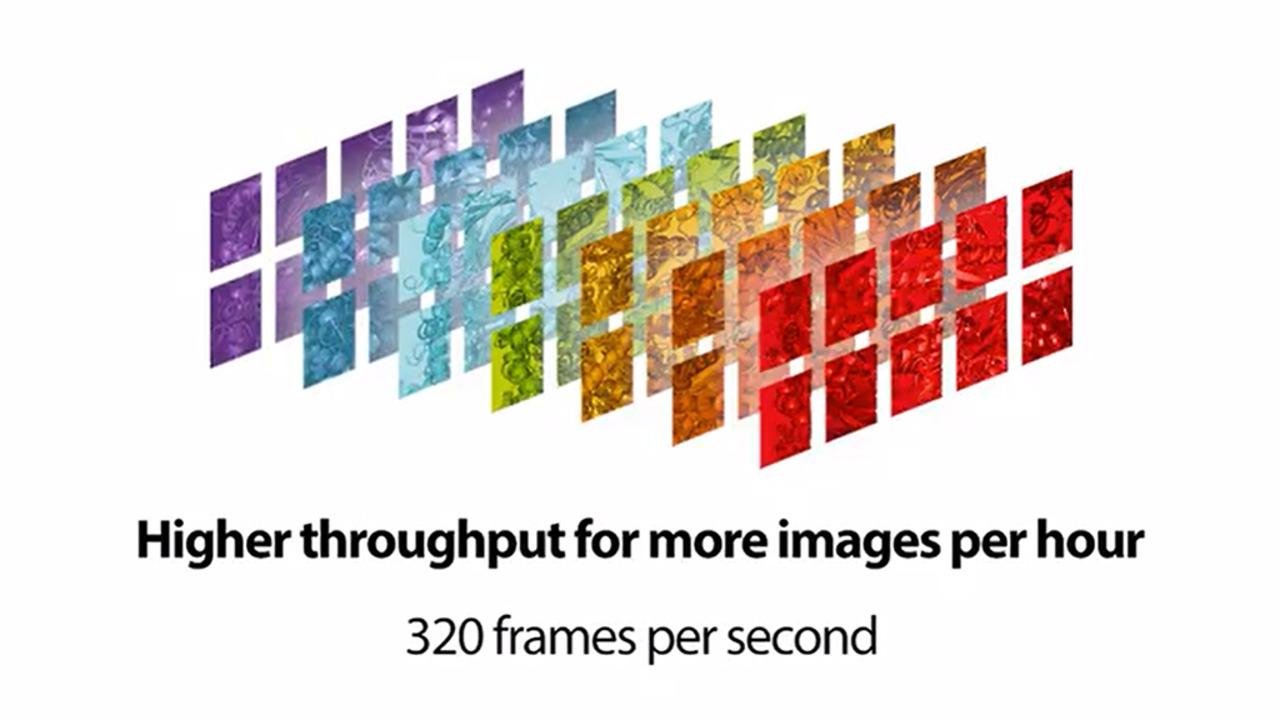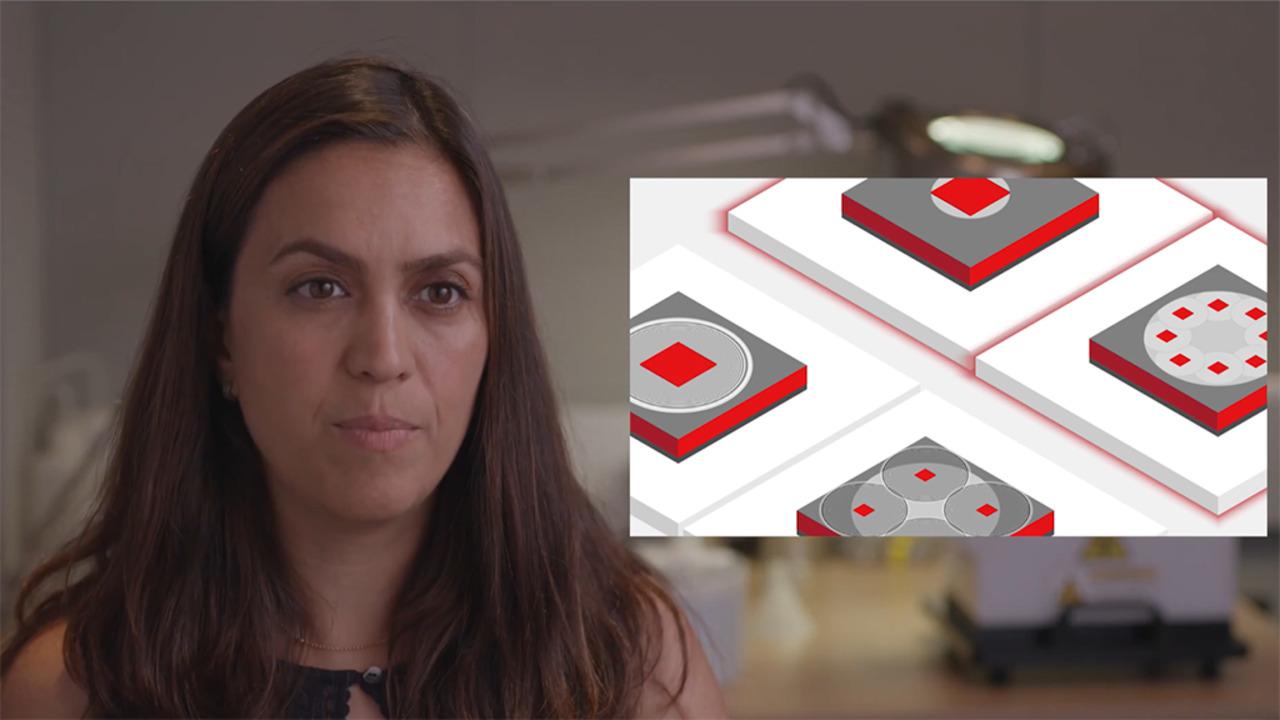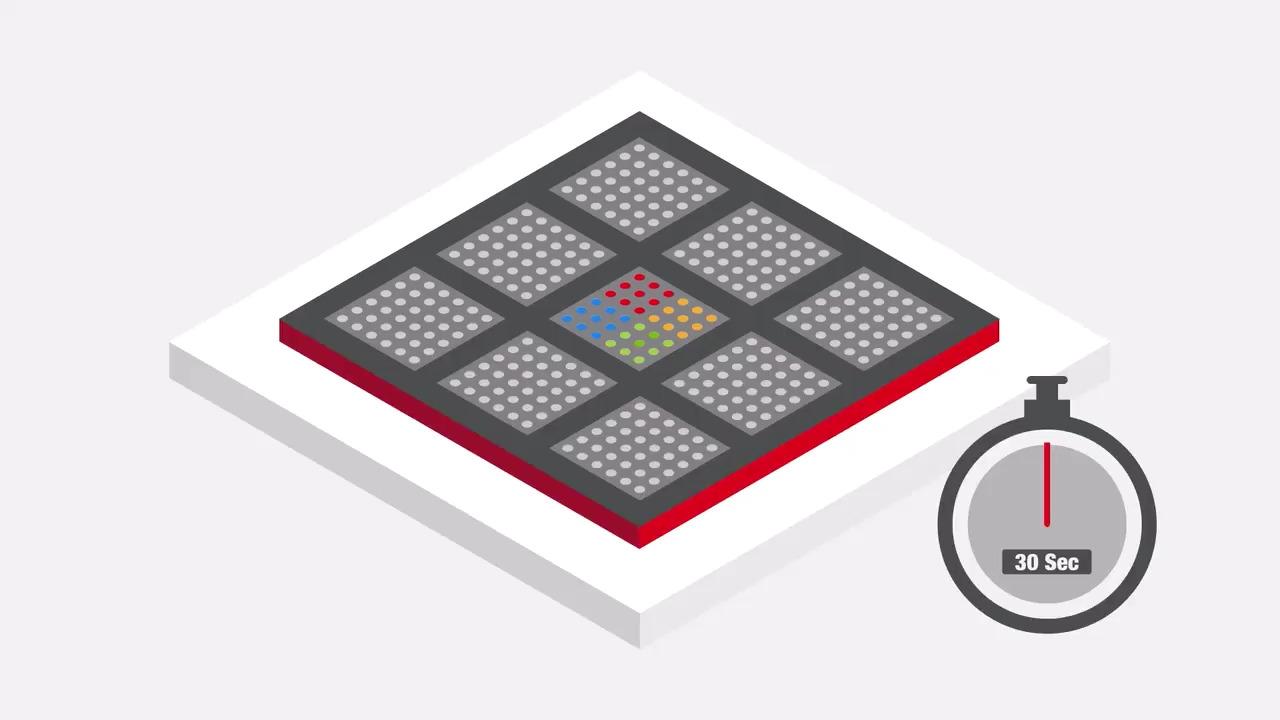
Advanced cryo-TEM hardware and software
The Thermo Scientific Glacios 2 Cryo-TEM offers many improvements over the flagship instrument. The combination of the Thermo Scientific Falcon 4i Direct Electron Detector, fringe-free imaging, a newly designed enclosure, and innovative Thermo Scientific Smart EPU Software work together to guide the microscope, enabling both new and experienced users to get the best possible results from their samples.
Cold field emission source for enhanced image quality
To meet the growing need for high-resolution, high-quality imaging, the Glacios 2 Cryo-TEM can come equipped with a cold field emission gun optimized for low energy spread (E-CFEG, ≤0.3 eV). This low energy spread maximizes the contrast at high spatial frequency domain, making it possible to efficiently solve structures at resolutions of 2.0 Å or less. For example, at a target resolution of 2.0 Å, the contrast is enhanced 1.6x compared to the X-FEG (92% vs 57%); and at the target resolution of 1.5 Å, the contrast is enhanced 4.5x compared to the X-FEG (76% vs 17%). Additionally, the E-CFEG also enhances data throughput because the same resolution of the 3D reconstructions can be reached using less images/time.
Falcon 4i Direct Electron Detector
The Falcon 4i Direct Electron Detector is the ideal solution for both single particle and cryo-tomography applications. With its unique combination of high image quality, high throughput, efficient lossless data compression enabled via electron-event representation (EER), and a streamlined solution for data management and quality monitoring, the Falcon 4i Electron Detector offers productivity and a performance boost over other detectors.
Selectris Imaging Filters
The Thermo Scientific Selectris and Selectris X Imaging Filters are post-column imaging filters that improve the contrast of TEM images, resulting in high-resolution structures. The zero-loss filtering of the Selectris Filters removes noise caused by inelastically scattered electrons, producing an increased signal-to-noise ratio (SNR) and better contrast. Designed for high stability, the zero-loss peak position of the Selectris Filters has minimized sensitivity to temperature variations in the environment, eliminating the need for frequent tuning.
Energy filtering on 200 kV cryo-TEMs
Energy filtering is essential for cryo-EM acquisition conditions that generate a large amount of noise through interfering inelastic electron scattering. This can be the result of two main factors: sample thickness and accelerating voltage. Sample thickness is especially important for cryo-tomography applications, as there is an inevitable increase in the travel path at larger tilt angles. Notably, this means that energy filtering on a 200 kV instrument will have an inherently greater impact than on 300 kV tools, where there is less inelastic scattering. Narrow slit width and stable slit (position) is another key requirement for high-quality energy filtering. The narrower the width, the less of the unfiltered signal is sampled, and the less data is needed to produce high-quality results. With the Selectris Energy Filter, extremely narrow slit widths are possible (<10 eV) with low slit drift (less than ±1.5 eV in 24 hours).
Fringe-free imaging and aberration-free image shift
TEM data acquisition software
Cryo-EM software
Our cutting-edge cryo-electron microscopy software enhances the capabilities of this powerful imaging technique, helping you achieve insights into the structure and function of a wide range of targets.
Smart EPU Software for single particle analysis
Smart EPU Software enables faster and easier set up and processing, benefiting both expert and non-expert microscopists. Several critical set-up steps have been automated, such as alignment of the column and repair of system status, when possible. In addition, the software and various optional add-ons can help users get the most out of their microscope time and the best possible results.
- Optional Smart EPU Software with EPU Quality Monitor is an AI-enabled software solution capable of analyzing intermediate results, providing instant feedback and steering data collection on the fly.
- Optional Smart EPU Software with Embedded CryoSPARC Live is a turnkey solution for real-time structural feedback on data quality and comes with full service and application support.
- Optional EPU Multigrid Software allows data collection for up to 12 grids to be completed while away from the microscope, ensuring maximum productivity.
For Research Use Only. Not for use in diagnostic procedures.


